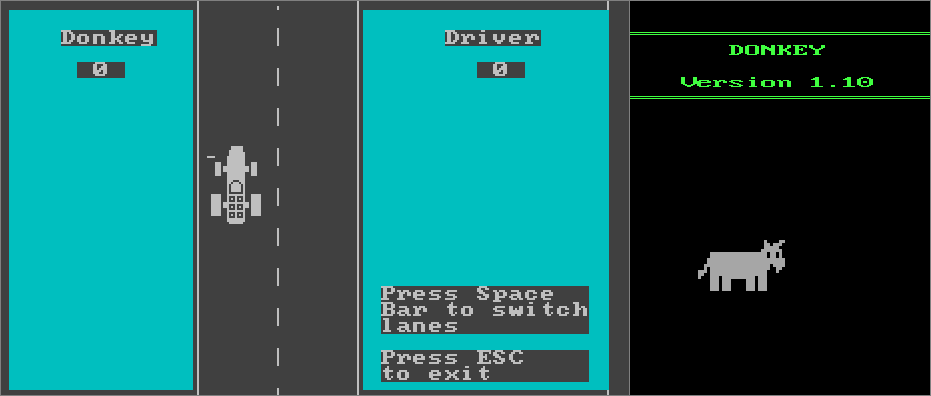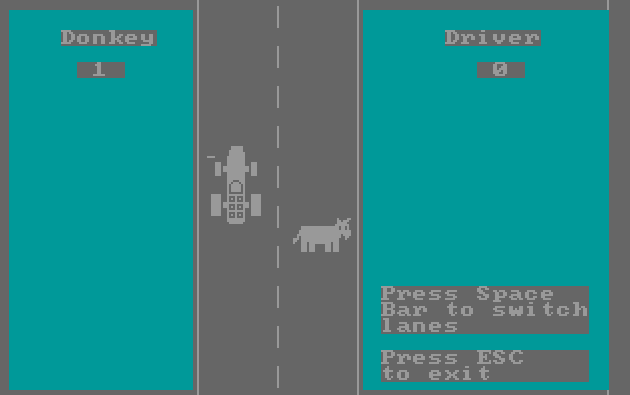DONKEY.BAS and the Gaming Revolution That Could Have Been
In DONKEY.BAS, you are a car. Take a moment to absorb the significance of that fact, let it challenge your equilibrium now, for you don't want to be in the middle of an identity crisis while facing the forthcoming perils. At first glance, it may seem that you are on a simple, uneventful excursion on a straight road, but no, there are doings afoot.
It starts with a solitary cuddy, unblinking and blissful in its ignorance of your high-speed approach. If you are quick, you will at this moment engage the game's sole interactive element, the space bar, in time to elude the equine menace. However, before you even have time to catch your breath, you find yourself careening towards another unheeding burro. One after another, a rain of jackass assaults your senses and if you blink for even a split second, they will tally a point over the smoldering wreckage of your vehicle.
Yes, it's true that you can score a point of your own, one for every 11 successful donkey evasions. But don't even think about celebrating for the barrage of livestock continues without pause. And without end.
You see, DONKEY.BAS has no winner, only victims. Once you are engaged in its spiral of futililty, you can never leave. Sure, you can press the escape key and cease the game from running, but it never really leaves you. And you never really stop driving.
A naive observer might interpret the donkey-dodging jaunt as an expression of Bill Gates' unrelenting competitive drive. In this interpretation, adversaries are nothing more than cud-chewing flesh bags that need not be defeated, only avoided. However, I believe a deeper meaning lies at its heart.
In ancient Egypt, donkeys were used to represent a god, one that was our ultimate source of life and energy, the mighty sun god, Ra. And herein is the crux of this ludic masterpiece. A never-ending stream of donkeys is tantamount to a deluge of light... and meaning. Yes, within these bits lies the answer to the meaning of life.
Sure, you may mock its simplicity. You might say that similar games had long been available for the Apple ][, such as Sirius Software's Autobahn.
There are no lanes to bound Autobahn's torrent! And yes, even handheld games had been using the formula, including Mattel's Auto Race (1977), the first ever electronic handheld.

![Gameplay and sprites from the Apple ][ game, Autobahn, with a stream of cars in the background.](https://blogger.googleusercontent.com/img/b/R29vZ2xl/AVvXsEg8jwjxL4BrcJ79OM9czuZVp7gLc4rBdts8jvpL-9E2dkzqLVaMGct-G0iFPVvU9lYhujAVuI-mRneSzfIqnRNoo26djcbkrN9kEt5EQnS0_13LRokboDuqwrOHENZ7h8PGOLLf2JesMl9V/w640-h386/ezgif.com-gif-maker+%25282%2529.gif)

Comments
Post a Comment